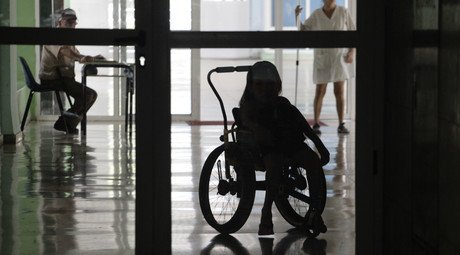Women’s brains less prone to memory lapses than men’s – study

Women are less likely to be affected by memory problems in old age because of the way their brains develop, a new study suggests. Men’s brains, however, are less likely to be affected by disabilities.
The research, conducted by scientists at Newcastle and Cambridge Universities, suggests earlier predictions that rates of dementia increase as life expectancy rises may be incorrect.
Scientists showed that male life expectancy has risen by a greater extent than women’s since the 1990s, though women are still expected to live longer.
Between 1991 and 2011, life expectancy increased by 3.6 years for women and 4.5 years for men.
The study also showed the amount of time men spent suffering from memory problems, or “mild cognitive impairment,” had increased slightly.
Women, on the other hand, were found to suffer from moderate or severe disability for seven months longer than previously recorded, a total of 2.5 years. Men were not found to suffer from the same trend, suffering from only 1.3 years of mild disability.
Professor Carol Jagger from the University of Newcastle, who led the research published in the Lancet medical journal on Wednesday, said the aim of the study was to examine quality of life in line with growing life expectancy.
“The big unanswered question is whether our extra years of life are healthy ones and the aim of our research was to investigate how health expectancies at age 65 years and over changed between 1991 and 2011.
“One possibility for the increased years women are living with mild disability might be the rise in obesity levels over the decades, but there may also be particular conditions, or just more multiple diseases, which are a feature of very old age.”
In total, 7,635 people took part in the tests between 1991 and 2011 in Newcastle, Cambridge and Nottingham.
“Our findings have important implications for government, employees and individuals with respect to raising the state pension age and extending working life,” Jagger added.
“It is also necessary for community care services and family carers who predominantly support those with mild to moderate disability to enable them to continue living independently.”
The World Health Organization states that currently life expectancy in Britain is 79 for men and 83 for women.














